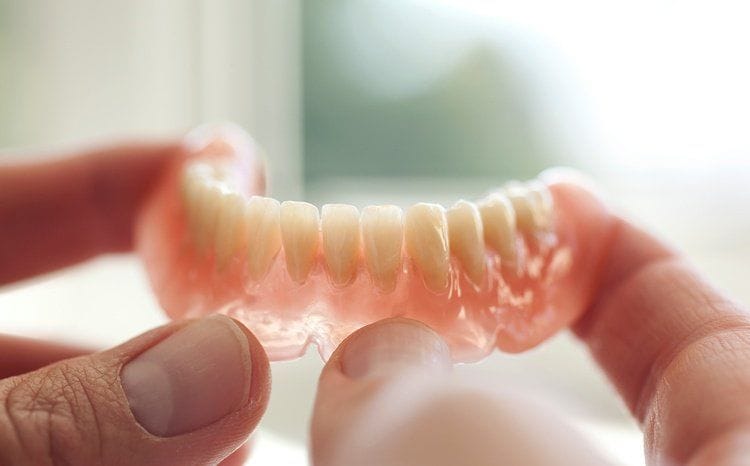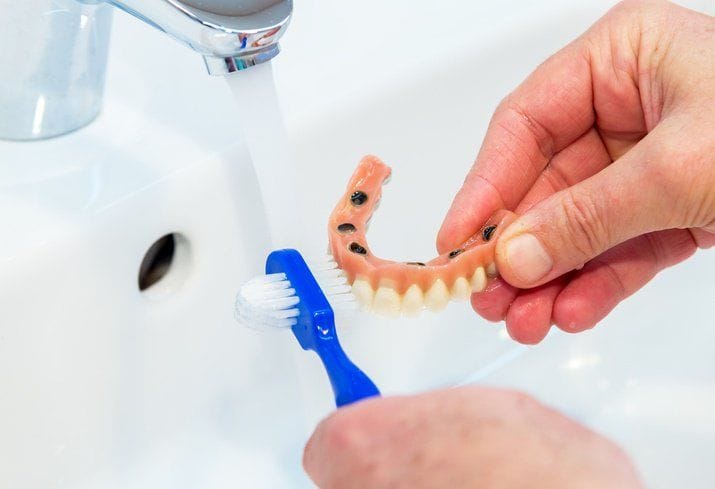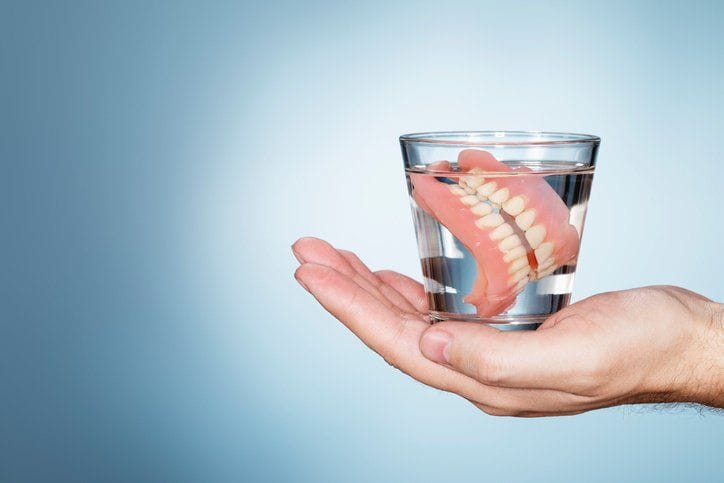
Dentures are a significant investment, and should be given special attention to make sure they don’t require replacement too quickly. Teeth are put under tremendous strain every day by all types of foods and drinks, and dentures are particularly susceptible to damage if they are not adequately cared for.
Denturists can carry out necessary repairs and cleaning during a check-up, but clients should be given advice about what to do between visits. Natural teeth and dentures require different treatment in numerous ways, so they may not be aware what precautions to take.
Let’s take a look at the best ways to keep dentures safe and clean.
Make Sure to use the Right Products When Cleaning Dentures After Eating
Dentures should be cleaned at least once per day and rinsed after every meal. After removing the dentures, a client should run cool water over them and also place a soft towel on the sink to make sure they don’t break after a fall.
Clients should be advised to use a soft-bristled brush and non-abrasive denture cleaner to remove food deposits and prevent staining. Hand soap or dishwashing liquid can also be used during this process. The surface should be brushed gently to avoid damaging the plastic elements.

A soft-bristled brush should be used when cleaning dentures
Denturist course graduates will know that many types of toothpaste are too abrasive for use on dentures, and should be avoided. Bleach is also a bad option because it may whiten the pink portion of the dentures. Clients should also be advised to clean their tongue, cheeks, and the roof of their mouths before replacing the dentures to remove any existing adhesive.
Offering Night-time Advice to Clients After Your Denturist Program
It’s advised that dentures are taken out of the mouth for around 6-8 hours per day, and most people will do this while asleep. However, they can’t just be left to dry out on the nightstand, as it is vital that moisture is retained during this time.

Dentures need to remain moist when taken out of the mouth
Professionals with denturist training can recommend the best individual treatment for each set of dentures. Warm water or a dedicated denture cleanser solution is a good option for most prosthodontics, but be aware that some cleansers tarnish metal clasps. Clients must also keep in mind that placing dentures in water that is too hot can cause warping.
Small, plastic tubs are commonly used to hold the liquid and dentures, and this is a great way to remove stains, plaque, tarter and bacteria. After waking up in the morning, the dentures need to be thoroughly rinsed before placing them back in the mouth, as some cleansers contain chemicals which can be harmful if swallowed.
Professional Check-ups are Crucial to Maintaining a Healthy Smile
Clients can do a lot of things to preserve the quality of their dentures, but other tasks require the attention of a denturist professional. For instance, it’s normal that dentures need to be relined or rebased because of everyday wear-and-tear and changes in the client’s face, jaw bones, or gums.
DIY repairs are likely to cause damage to the clasp or metal attachments, and will eventually cause further irritation to the mouth. Only a trained denturist has the skills to carry out repairs safely and correctly, so clients should make a habit of getting regular check-ups to ensure their dentures are functioning properly at all times.
It’s a rewarding experience to help people achieve the smile they’ve always wanted.
Find out more about the denturist program at Oxford College.






